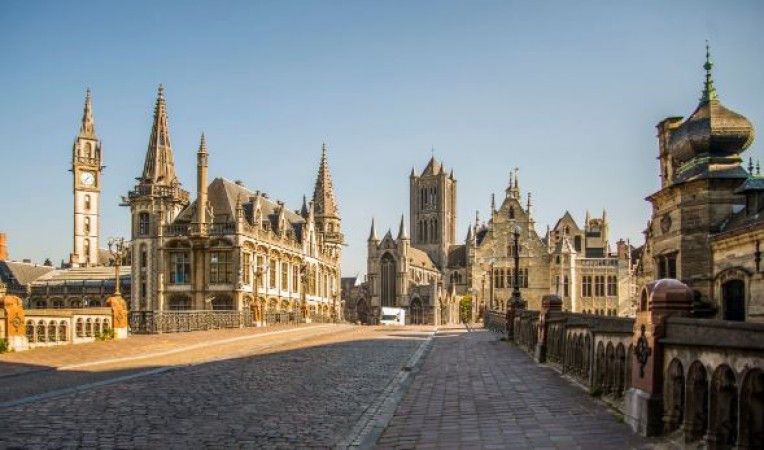
Geography and Regions
Belgium's geographical location has granted it both strategic importance and cultural richness. The country is divided into three main regions: Flanders in the north, Wallonia in the south, and Brussels-Capital in the center. Flanders is known for its Dutch-speaking population, while Wallonia primarily speaks French. Brussels, the capital city, is officially bilingual and serves as the de facto capital of the European Union.
Multilingualism and Identity
Belgium's linguistic diversity is a defining characteristic. The country has three official languages: Dutch, French, and German. This linguistic tapestry reflects Belgium's historical ties to neighboring countries and has contributed to a sense of regional identity. The linguistic divide has led to complex political dynamics, occasionally leading to tensions between different language communities.
Cultural Heritage
Belgium boasts a rich cultural heritage that has left an indelible mark on the world. The country is renowned for its medieval cities, stunning architecture, and artistic contributions. The historic city of Bruges, often referred to as the "Venice of the North," is famous for its picturesque canals and well-preserved medieval buildings. Brussels, with its Grand Place, is a UNESCO World Heritage Site and showcases opulent Gothic and Baroque architecture.
Artistic Legacy
Belgium has produced a remarkable array of artistic talent. The Flemish Primitives, a group of pioneering Northern Renaissance painters such as Jan van Eyck and Hieronymus Bosch, are celebrated for their intricate detail and innovative techniques. The surrealist painter René Magritte, known for his thought-provoking and whimsical works, hails from Belgium. The country's artistic legacy is also reflected in its numerous museums and galleries.
Culinary Delights
Belgium is a haven for food lovers, offering a wide range of culinary delights. Belgian chocolate is renowned worldwide for its quality and craftsmanship, while Belgian waffles are a beloved treat. The country is also famous for its diverse beer culture, with over 1,500 varieties of beer produced. Traditional dishes like moules-frites (mussels and fries) and carbonnade flamande (a hearty beef stew) showcase Belgium's culinary prowess.
European Nexus
Belgium's central location has made it a nexus of European politics and institutions. The headquarters of the European Union and NATO are located in Brussels, making the city a hub for international diplomacy and cooperation. This global presence has contributed to Belgium's reputation as a cosmopolitan and forward-thinking nation.
Challenges and Unity
While Belgium's multiculturalism is a source of strength, it has also presented challenges. The linguistic divide has at times led to political tensions and calls for greater regional autonomy. However, the country has demonstrated a commitment to unity and compromise, leading to innovative solutions that maintain its delicate balance of linguistic and cultural diversity. Belgium's rich history, cultural diversity, artistic heritage, and central role in European affairs make it a captivating destination and a unique microcosm of the continent. As a nation that has weathered linguistic and cultural differences, Belgium serves as an inspiration for fostering unity amidst diversity in our interconnected world.
Kuwait: A Glimpse into the Pearl of the Arabian Gulf
Exploring the Diversity and Richness of Malaysia
ISKCON Temple, Bangalore: A Divine Haven of Spirituality
Exploring the Rich Cultural Tapestry of Morocco